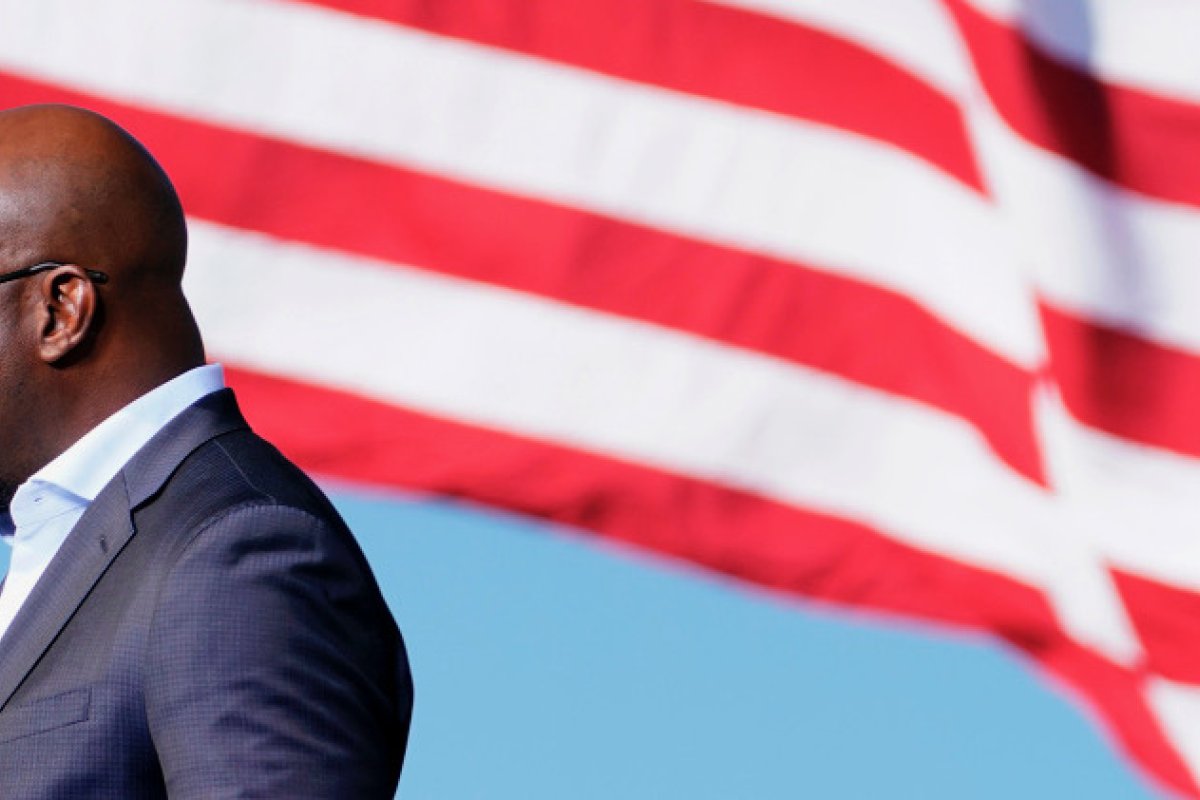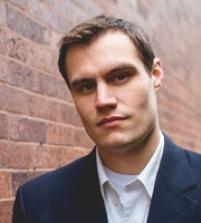
Raphael Warnock and the Ongoing Legacy of Black Liberation Theology
The myth of a monolithic Black theology at the heart of political scare tactics
By Russell P. JohnsonApril 5, 2021
“Raphael Warnock hates puppies.”
This claim was part of a satirical ad from Raphael Warnock’s 2020 campaign to represent Georgia in the U.S. Senate. In the ad, a voiceover also accused the longtime pastor of Ebenezer Baptist Church of eating thin-crust pizza with a fork, before Warnock himself addresses the camera to tell voters that similar attack ads will be coming from his opponent Kelly Loeffler. Georgians, he reminds viewers, should ignore spurious accusations and focus on the issues.
The satire was not far from reality. A barrage of attack ads from the Loeffler campaign were joined by a salvo of tweets, blog posts, opinion pieces, and news stories that all painted Warnock as a religious radical with anti-American commitments. A central thread in these criticisms is Warnock’s inheritance of Black liberation theology.
Warnock, who recently gave his first speech on the Senate floor and yesterday delivered his Easter sermon at Ebenezer Baptist Church in Atlanta, earned his PhD in theology from Union Theological Seminary, studying with Black liberation theologian James Cone. The criticisms exploit this connection, using guilt-by-association tactics to insinuate that Warnock’s hidden agenda for the United States can be found in Cone’s more incendiary remarks.
Tenuous genealogical argumentation is by no means limited to the right in America, but some of the interpretive moves made to unmask Warnock are especially thin, closer to “Six Degrees of Kevin Bacon” than to serious interpretation of a political and religious movement. One story digs into Union Theological Seminary, writing, “Because of the formative nature of theological training, as well as Warnock’s long tenure as a student at the school, it is worth understanding a little bit about the seminary.” The author goes on to quote Dietrich Bonhoeffer’s critique of Union from 1939. Now, a lot has changed at Union since 1939—they’ve hired Cornel West four times since then—but in the commentator’s eyes, the institution's core message remains the same and tells us all we need to know to grasp Warnock’s dangerous theology.
This guilt-by-association line of reasoning will be familiar to anyone who paid attention to Barack Obama’s campaign in 2008, in particular the controversy surrounding Obama’s pastor, Rev. Jeremiah Wright. I remember one article, whose argument was that in order to understand Obama’s politics, you needed to understand Wright’s, and to understand Wright’s means we need to turn to James Cone, and what you need to know about Cone is that his ideas derive from Malcolm X and Karl Marx.
These genealogical arguments range from good-faith efforts to contextualize Black prophetic Christianity to bad-faith efforts to dismiss Black Christian leaders by linking them to established villains in the culture war mindset. But in order to be plausible, these arguments need to treat Black liberation theology as a monolith that has remained relatively unchanged since the 1960s. This assumption is untrue, and a helpful resource to correct it is Warnock’s own 2014 book, The Divided Mind of the Black Church: Theology, Piety, and Public Witness.
In the book, Warnock argues that the Black church in America has gone through a series of pivotal changes since the seventeenth century and continues to develop. The emergence of Black liberation theology in the 1960s is just one moment in this story. Warnock writes, “It represented a new and self-conscious form of God-talk, a sophisticated apologia for a faith formed in slavery and in defense of a black liberationist trajectory that continues to bear witness against the sins of a nation that is at once putatively Christian and profoundly racist” (75). Black liberation theology is not an immutable political ideology into which one generation indoctrinates the next. It is a living tradition that thrives on dissent. It exists in conversation and contestation with the Black church, the Bible, the predominantly white academy, the history of slave religion, womanist and feminist theologies, and the political realities of the day.
As Alasdair MacIntyre reminds us, “Traditions, when vital, embody continuities of conflict.” As Warnock details, this has been true of Black liberation theology since its inception. James Cone, for example, faced critiques from J. Deotis Roberts, Cecil Cone, Gayraud Wilmore, and Delores Williams. Cone publicly responded to these critiques and incorporated them into his later writings, deepening and expanding his vision of Christian witness within oppressive and exploitative societies.
Public theologians like Warnock do not simply absorb the ideas of their predecessors but carry on a tradition in which questioning the wisdom of past generations and current pieties is a crucial part of the praxis. The current task of Black liberation theology, Warnock argues, is to seek “the flowering of a self-critical liberationist community.” This calls for “honest, risk-taking dialogue and critical self-reflection that collates the pietistic and liberationist dimensions of Black faith and marshals them in concert with other voices, in a bold, public theology that calls all freedom-loving people together for the fostering of a sustainable planet and a more just and peaceful world” (11–12).
Warnock’s critics aren’t wrong to label him a religious radical. But, as his book testifies, this radicalism emerges from a dynamic tradition of Black Christianity that demands both personal transformation and prophetic challenge. The “divided mind” of this tradition can’t be reduced to a few snapshots—whether of Cone, Wright, or King—but must be reckoned with in its vital complexity.
Photo: Brynn Anderson | AP
Sightings is edited by Daniel Owings, a PhD Candidate in Theology at the Divinity School. Sign up here to receive Sightings via email. You can also follow us on Facebook and Twitter. The views and opinions expressed in this article are those of the author and do not necessarily reflect the position of the Marty Center or its editor.


